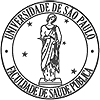General Aspects
Considering how imperative a health research is, the Department of Epidemiology will conduct researches in Biostatistics, Entomology of Public Health, and Epidemiology focused on the diagnosis of the population health. Within this context, it is essential to study diseases and the way they affect people, their distribution, risk factors, and mortality, trying to identify how to protect and improve health and reduce diseases.
Three major research lines are developed, which are
1. Methods in Epidemiology and Biostatistics
Comprising birth, morbidity, and mortality, these studies aim to contribute to the improvement of epidemiological and statistics methods applied to Public Health investigations; moreover, they assess the quality of the data and their major official sources such as the Health Information Systems, in particular.
2. Entomology and Ecology in Public Health
- Systematic of hematophagous insects, especially those of the Culicidae, Pshychodidae, and Reduvidae families;
- Studies about the biology, ecology, and behavior of infectious-agent vector insects;
- Epidemiology of vector-insect-linked diseases; and surveillance and control of vector insects;
- Studies about the genetics of vector insect populations.
3. Epidemiology of the Cycle of Life and Harms to Health
- Studies on how to identify, quantify, and characterize the harms to the population health in all phases of life;
- Producing knowledge over the natural history of events relevant to public health;
- Analyses of environmental risk exposure at work and to the life of urban area populations;
- Evaluation of public health interventions;
- Evaluation of therapeutic or prophylactic procedures emphasizing the efficiency/effectiveness and safety of vaccines.

